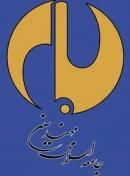Iran hard-liners warn Ahmadinejad he could be deposed
P olitical hard-liners warned President Mahmoud Ahmadinejad on Tuesday that he could be deposed like past Iranian leaders if he continued to defy the country’s supreme religious leader.
olitical hard-liners warned President Mahmoud Ahmadinejad on Tuesday that he could be deposed like past Iranian leaders if he continued to defy the country’s supreme religious leader.
The implied threat was the latest evidence of the rift within Iran’s conservative camp and could serve to further sap the authority of a president already considered illegitimate by reformists.
The Islamic Society of Engineers, a political group close to parliamentary speaker Ali Larijani, warned in an open letter to Ahmadinejad that he could suffer the same fate as Prime Minister Mohammed Mossadegh, who was deposed in 1953 in a CIA-backed coup with the acquiescence of the clergy.
The letter also cites the experience of President Abolhassan Bani-Sadr, who was ousted in 1981 and fled the country after he fell out with the Islamic Republic’s founder, Ayatollah Ruhollah Khomeini. Both leaders had been elected by huge margins.
“It seems you want to be the sole speaker and do not want to hear other voices,” the group’s letter says, noting that recent actions by Ahmadinejad have frustrated his own supporters. “Therefore it is our duty to convey to you the voice of the people.” [continued…]
Iran: the tragedy & the future
Nasser Hadian, a political scientist, told me [in early 2009]: “I say to my students, it’s hard to wait but you should be patient. The laws of the country cannot forever lag behind the reality, and Iran’s reality today is that women have been empowered and secularism has spread.” Nor, I thought, in an election year, could politics forever lag behind these facts.
The June 12 election offered a potential bridge between this youthful Iran in rapid evolution, curious about the world and increasingly connected to it online, and revolutionary institutions that had veered in a conservative direction under Ahmadinejad. Presidential votes have served as safety valves in the past. They have provided modest course corrections that have made the term “Republic” not altogether meaningless. Iran was distinguished in a despotic region by its unpredictable elections, as when the reformist Mohammad Khatami won in a landslide in 1997.
Khatami, who ended up changing more tone than substance, said he would stand again this year, before desisting in favor of Moussavi, a former prime minister of impeccable revolutionary credentials, a distant relative of Ayatollah Khamenei, a staunch nationalist, and seemingly the very embodiment of unthreatening change. Khamenei, as president, had worked with Moussavi in the war-ravaged 1980s. Their relationship was uneasy but survived eight years. Allergic to another Khatami presidency, the supreme leader appeared to have made his peace with Moussavi, even if his preference for Ahmadinejad was clear.
But Khamenei’s acquiescence was to the Moussavi of early May: drab, detached, and dutiful. By early June, he had become the energized anti- Ahmadinejad. Apathy among Iranians had yielded to the activism that would produce the 85 percent turnout. Moussavi had been propelled in part by his charismatic wife, Zahra Rahnavard, whom I saw just before the election at a big Tehran rally where, in floral hijab, she began with a resounding “Hello Freedom!” and proceeded to warn that “if there is rigging, Iran will have a revolution.” [continued…]
Reports of prison abuse and deaths anger Iranians
Some prisoners say they watched fellow detainees being beaten to death by guards in overcrowded, stinking holding pens. Others say they had their fingernails ripped off or were forced to lick filthy toilet bowls.
The accounts of prison abuse in Iran’s postelection crackdown — relayed by relatives and on opposition Web sites — have set off growing outrage among Iranians, including some prominent conservatives. More bruised corpses have been returned to families in recent days, and some hospital officials have told human rights workers that they have seen evidence that well over 100 protesters have died since the vote.
On Tuesday, the government released 140 prisoners in one of several conciliatory gestures aimed at deflecting further criticism. President Mahmoud Ahmadinejad issued a letter urging the head of the judiciary to show “Islamic mercy” to the detainees, and on Monday Iran’s supreme leader, Ayatollah Ali Khamenei, personally intervened and closed an especially notorious detention center.
But there are signs that widespread public anger persists, and that it is not confined to those who took to the streets crying fraud after Mr. Ahmadinejad’s landslide victory last month. Several conservatives have said the abuse suggests a troubling lack of accountability, and they have hinted at a link with Mr. Ahmadinejad’s recent willingness to defy even the venerated Ayatollah Khamenei. [continued…]
Iraq raids camp of exiles from Iran
Iraqi troops and police carried out a bloody raid Tuesday on the camp of an Iranian opposition group that the United States has long sheltered, marking the Iraqi government’s boldest move since it declared its sovereignty a month ago and offering the latest sign that American influence is waning as Iranian clout rises.
The operation, which caught U.S. officials off guard, coincided with a visit by Defense Secretary Robert M. Gates, and analysts said it appeared designed to send a message of Iraqi independence.
The Mujaheddin-e Khalq, or MEK, has supplied information about Iran’s nuclear program to the United States, but the group has long been an irritant to the Islamic republic, which has repeatedly asked the government of neighboring Iraq to expel MEK members. The way Baghdad deals with the group is widely seen as a signal of whether Iraq is more heavily swayed by Iran or by the United States.
Leaders of the group said Iraqi troops fatally shot four residents Tuesday night and wounded scores. U.S. officials have long opposed a violent takeover of the camp northeast of Baghdad, and the Iraqi government’s willingness to carry out the raid while Gates was in the country startled some American officials. [continued…]

